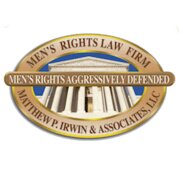Best Domestic Violence Lawyers in Cape Coral
Share your needs with us, get contacted by law firms.
Free. Takes 2 min.
Free Guide to Hiring a Family Lawyer
List of the best lawyers in Cape Coral, United States
About Domestic Violence Law in Cape Coral, United States
Domestic violence law in Cape Coral is governed by Florida state law and enforced locally by the Cape Coral Police Department, the Lee County Sheriff, and Lee County courts. Domestic violence covers a wide range of behaviors between family or household members and intimate partners, including physical assault, sexual abuse, stalking, threats, harassment, and economic or emotional control. Victims and respondents in Cape Coral can pursue both criminal prosecution and civil remedies such as protective orders. Local agencies and courts focus on immediate safety, evidence collection, and both short-term and longer-term legal protections.
Why You May Need a Lawyer
Domestic violence cases can involve criminal charges, civil protective orders, child custody disputes, divorce, immigration consequences, and property issues. A lawyer can help in many common situations, including:
- Filing for an injunction for protection or defending against one.
- Responding to or defending criminal charges such as assault, battery, stalking, or harassment.
- Advising on how a protective order affects custody, visitation, child support, and housing.
- Helping preserve and present evidence, including medical records, photos, texts, email, social media, and witness statements.
- Advising noncitizens about immigration consequences and options.
- Negotiating plea agreements, diversion programs, or alternatives to trial when appropriate.
- Enforcing or seeking relief from violations of court orders, including orders to surrender firearms, vacate a home, or stay away.
Local Laws Overview
Key legal concepts relevant in Cape Coral include the following:
- Definitions and scope - Domestic violence protections typically apply to current or former spouses, people related by blood or marriage, people who live together or used to live together, and dating partners. The conduct covered can be physical violence, threats, stalking, sexual abuse, and other forms of coercion or intimidation.
- Protective orders - Victims can request emergency temporary orders and then a full hearing for a final injunction for protection. Courts can order the respondent to stay away, avoid contact, leave the residence, and refrain from harassment or stalking. Emergency relief can sometimes be obtained the same day, but a full hearing is typically scheduled soon after.
- Criminal enforcement - Law enforcement can investigate and arrest when there is probable cause of domestic violence. Prosecutors may bring criminal charges for assault, battery, stalking, kidnapping, sexual offenses, and related crimes. Criminal cases and civil injunctions run on separate tracks, but outcome in one can affect the other.
- Arrest policies - Local agencies follow state law and departmental policies for domestic violence calls. Officers may make arrests when they believe a crime occurred and probable cause exists. Dual arrests can occur when the officer believes both parties committed offenses, although these are reviewed and challenged in court.
- Firearm restrictions - Courts can impose restrictions on firearm possession as part of a protective order. Federal and state firearm laws may also prohibit possession by people subject to qualifying protection orders or convicted of certain domestic violence crimes.
- Custody and visitation - A protective order does not automatically determine custody, but allegations of domestic violence are an important factor in custody and visitation decisions. Courts prioritize child safety and may order supervised visitation or deny contact if there is a demonstrated risk.
- Local support - Cape Coral and Lee County provide victim services, advocacy, emergency shelter options, and assistance with filing paperwork. The Lee County Clerk of Court handles filings for family and protective order matters and can point to local procedures and forms.
Frequently Asked Questions
How do I get a protective order in Cape Coral?
If you are in immediate danger, call 911. To obtain a protective order, you can go to the Lee County courthouse or contact a local victim advocate to help prepare and file a petition for an injunction for protection. Courts can issue temporary emergency orders and will schedule a hearing for a longer term order. You should bring any evidence you have, such as photos, medical records, messages, and witness information.
Can I get an emergency order the same day?
Yes, courts can issue emergency temporary orders on short notice if the judge finds an immediate threat to safety. The temporary order provides short-term protection until a full hearing can be held. If law enforcement is involved, an officer can sometimes assist in initiating emergency filings.
What does a protective order usually prohibit?
A protective order commonly prohibits contacting, harassing, stalking, or coming near the protected person. It can require the respondent to stay away from the home, workplace, or children. Courts can also order temporary custody, possession of a vehicle, or require the respondent to surrender firearms where legally authorized.
Will a protective order affect child custody?
A protective order can influence custody and visitation because courts consider the safety of children a top priority. However, a protective order is not itself a final custody determination. You may need to file separate family court motions for temporary custody or visitation arrangements, and the court will evaluate evidence to balance parental rights with child safety.
Can the person named in the order still have a gun?
Courts may prohibit firearm possession as part of a protective order, and federal and state laws can bar individuals subject to qualifying protective orders or those convicted of certain domestic violence crimes from owning or possessing firearms. If a court order requires surrender of weapons, compliance is mandatory and violations carry criminal penalties.
What happens if the order is violated?
Violating a protective order is a criminal offense. Violations should be reported to law enforcement right away. Police can arrest the respondent for violating the order, and the court can impose criminal penalties and additional civil remedies. Keep records of violations, including dates, times, witnesses, and any evidence.
Do I need a lawyer to get or defend against an order?
You are not required to have a lawyer to file for or respond to a protective order, but legal representation can improve your ability to present evidence, understand legal options, and protect your rights. Attorneys are particularly important when the case involves complex custody issues, criminal charges, immigration concerns, or contested factual disputes.
Will the police always arrest the abuser?
Police will arrest when they have probable cause that a domestic violence crime occurred. If no clear probable cause exists at the scene, officers may still take other actions such as separating the parties, documenting statements, and advising on how to seek a protective order. If you believe an arrest should have been made, ask the investigating agency for details and consider speaking with a lawyer or victim advocate.
How should I prepare for a court hearing on a protective order?
Bring all relevant evidence such as photos of injuries, medical records, text messages, emails, call logs, social media posts, witness names and statements, police reports, and a written timeline of incidents. Be ready to describe specific incidents with dates and details. Victim advocates can often accompany you to court and provide support during the hearing.
What if I think the allegations against me are false?
If you are accused, do not try to contact the alleged victim. Seek legal counsel immediately. A lawyer can help you gather evidence, prepare a response, request discovery, and defend you in both civil and criminal proceedings. False allegations are serious and can be challenged in court, but proving falsity requires careful factual and legal work.
Additional Resources
Below are types of local and state resources that can help people dealing with domestic violence:
- Local law enforcement - Cape Coral Police Department and Lee County Sheriff for emergency response and investigations.
- Court-based victim advocates - Lee County courthouse victim services for assistance with filings and court safety planning.
- Local shelters and crisis centers - organizations that offer emergency shelter, advocacy, safety planning, and counseling.
- Statewide organizations - statewide coalitions that provide training, referrals, and a broader network of services for victims.
- Legal aid providers - nonprofit legal services and pro bono programs that assist low-income victims with family law and protective order matters.
- Florida Bar Lawyer Referral Service - for finding private attorneys experienced in domestic violence, family law, and criminal defense.
- Healthcare providers and hospitals - for medical treatment and documentation of injuries.
Contact local courts or victim services offices for details about specific offices and programs available in Cape Coral and Lee County.
Next Steps
If you or someone you know is facing domestic violence in Cape Coral, consider the following steps:
- Immediate safety - If you are in immediate danger, call 911. Leave the location if it is safe to do so and go to a secure place such as a friend or family member's home or a shelter.
- Preserve evidence - Keep photographs of injuries, medical records, damaged property, screenshots of messages, call logs, and any other documentation. Write a timeline of incidents with dates, times, and witnesses.
- Report to law enforcement - File a police report if a crime has occurred. Request a copy of the report and the name and badge number of the officer who responded.
- Seek medical care - Obtain medical attention for injuries and request documentation that can serve as evidence.
- Contact victim services - Reach out to local victim advocates or shelter programs for safety planning, court accompaniment, and emotional support.
- Consider filing for a protective order - If you need legal protection, inquire at the Lee County courthouse or through a victim advocate about emergency orders and the process for a full hearing.
- Consult an attorney - If you can, consult a lawyer experienced in domestic violence, family law, or criminal defense. If cost is a concern, ask about legal aid or pro bono options.
- Plan for practical needs - Consider financial safety, securing important documents, changing passwords, and making a plan for children or pets if you must leave quickly.
Note - This guide provides general information and is not a substitute for legal advice. Laws and local procedures change over time. For advice tailored to your specific circumstances, consult a qualified attorney or a local victim advocate in Cape Coral or Lee County.
Lawzana helps you find the best lawyers and law firms in Cape Coral through a curated and pre-screened list of qualified legal professionals. Our platform offers rankings and detailed profiles of attorneys and law firms, allowing you to compare based on practice areas, including Domestic Violence, experience, and client feedback.
Each profile includes a description of the firm's areas of practice, client reviews, team members and partners, year of establishment, spoken languages, office locations, contact information, social media presence, and any published articles or resources. Most firms on our platform speak English and are experienced in both local and international legal matters.
Get a quote from top-rated law firms in Cape Coral, United States — quickly, securely, and without unnecessary hassle.
Disclaimer:
The information provided on this page is for general informational purposes only and does not constitute legal advice. While we strive to ensure the accuracy and relevance of the content, legal information may change over time, and interpretations of the law can vary. You should always consult with a qualified legal professional for advice specific to your situation.
We disclaim all liability for actions taken or not taken based on the content of this page. If you believe any information is incorrect or outdated, please contact us, and we will review and update it where appropriate.









